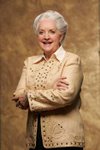Life is a terminal condition, and I am at that stage, along with about thirty-five million other Americans, when this holds particular interest for me. Like many parents, I have wondered if my offspring have thought about the fact that this time of life is also on the horizon for them, and whether or not they will be prepared to respond healthfully in either instance. Two recent experiences dramatically point up how some offspring of aging American are choosing to cope with this situation.
Last Sunday I visited a family friend who has been in an assisted living facility for several years. When she had been healthy and active, she was the hub and heart of her family. Then the years sapped her health and strength, her husband died and more responsibility was placed on her adult children. After her 80th birthday, she fell several times, and is now confined to a wheelchair.
We talked candidly about the typical reasons her children and grandchildren do not come to visit her very often—too busy with their own families, living far away, and fearing she will place further demands on them for additional assistance. She also knows that the reality of facing death, even someone else’s, is more than some people can stand, so they avoid contact with the aging person.
Later that same week I attended a memorial service for the mother of a dear friend. The woman was ninety years old and had lived with my friend and her husband for the past sixteen years.
In her son-in-law’s tribute, he lovingly shared the fact that since he and his wife could not have children, they had decided to take in and care for their aging parents. This was their last “child.” While he admitted there were challenges in the beginning, his face registered the truth in this statement: “The gift in what we both gained in the day-to-day living with Mom transcends my ability to describe it.”
My companion turned to me and whispered, “Everyone should be so lucky.” I nodded agreement. I had been a volunteer for Hospice of the Valley, and have accompanied a number of loved ones on their last life journey. Yet I had never witnessed such an extraordinary memorial service where tears and laughter flowed as one in a magical expression of love.
I realize fully that these two scenarios obviously reflect the culture, character and conscious awareness of the individual families. Each situation is appropriate for the people involved.
Truthfully I don’t see either scenario being in my future—either being ignored or cared for in such a selfless, charitable way. While I know that death is meant to be a sacred, loving, life-affirming and spiritually enlightening experience, many people still believe it is the most feared of all natural life events. Until society as a whole can move out of that mind-set and accept death as the natural result of being born, many end-of-life scenarios for elderly citizens will resemble the first example.
As for me, I have made practical plans that hopefully will assist me and my loved ones through this future time. My heart desire is to be at peace within and to be so focused on the sacredness of the event—of becoming one with my true essence, going home—that this and this alone will determine the quality of my experience.
I believe the answer for every human being is to accept that death is as natural as being born. As we can release the fear of death and move out of denial, we will be free to live more fully and ultimately to die a much better death no matter the circumstances in which we find ourselves.
____________________________
Copyright 2007 by Fern Stewart Welch
The author’s book THE HEART KNOWS THE WAY—How to Follow Your Heart to a Conscious Connection with the Divine Spirit Within is available from Amazon.com, other online booksellers, and through major bookstores such as Barnes & Noble and Borders.
Subscribe to:
Post Comments (Atom)

No comments:
Post a Comment